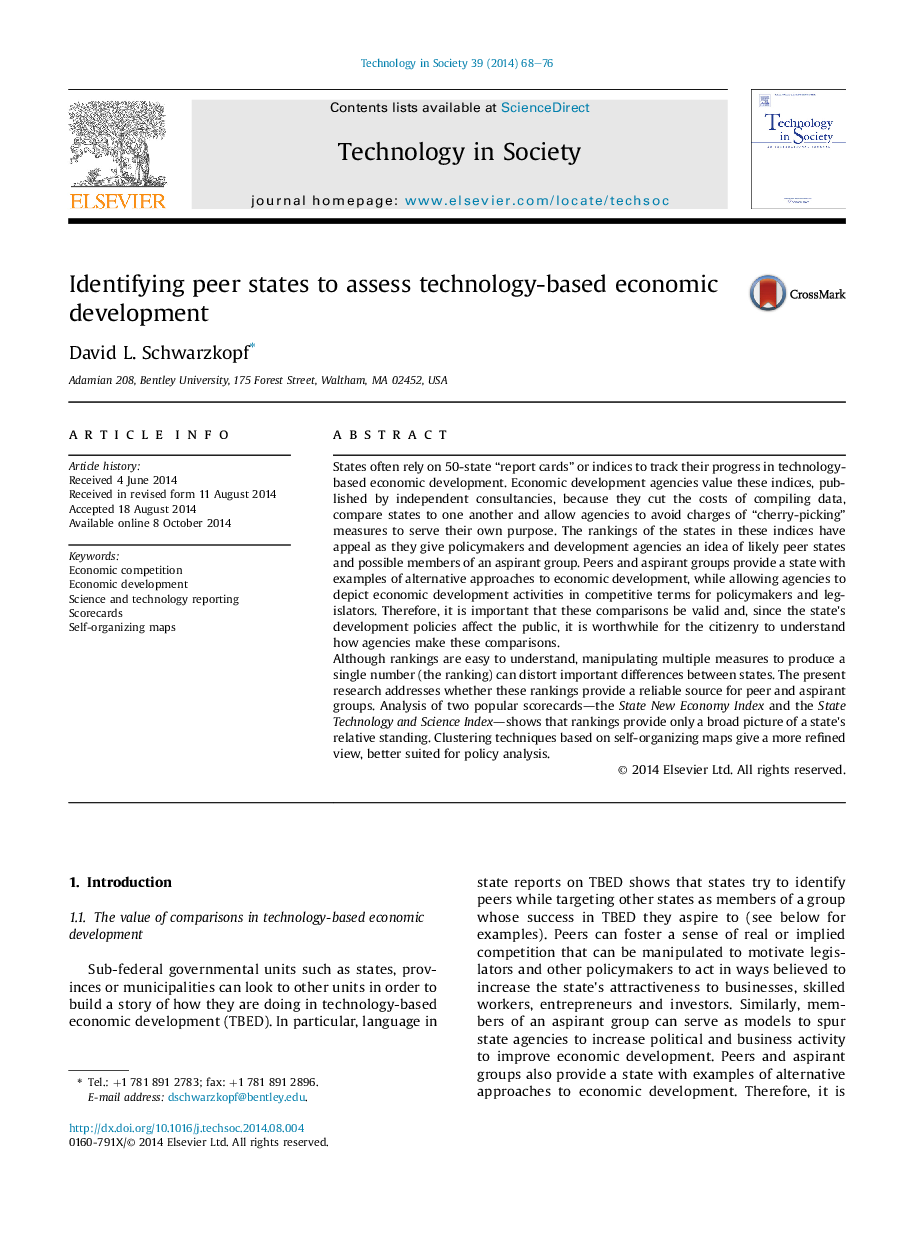| Article ID | Journal | Published Year | Pages | File Type |
|---|---|---|---|---|
| 375180 | Technology in Society | 2014 | 9 Pages |
•States use rankings in economic development scorecards to identify peers.•Mapping and clustering techniques are used to analyze two scorecards' rankings.•Proximity in rankings does not necessarily mean similarity on development measures.•Rankings do not reveal all peers; even states distant on the rankings can be peers.•Peer groups vary based on the scorecard's measuring technique.
States often rely on 50-state “report cards” or indices to track their progress in technology-based economic development. Economic development agencies value these indices, published by independent consultancies, because they cut the costs of compiling data, compare states to one another and allow agencies to avoid charges of “cherry-picking” measures to serve their own purpose. The rankings of the states in these indices have appeal as they give policymakers and development agencies an idea of likely peer states and possible members of an aspirant group. Peers and aspirant groups provide a state with examples of alternative approaches to economic development, while allowing agencies to depict economic development activities in competitive terms for policymakers and legislators. Therefore, it is important that these comparisons be valid and, since the state's development policies affect the public, it is worthwhile for the citizenry to understand how agencies make these comparisons.Although rankings are easy to understand, manipulating multiple measures to produce a single number (the ranking) can distort important differences between states. The present research addresses whether these rankings provide a reliable source for peer and aspirant groups. Analysis of two popular scorecards—the State New Economy Index and the State Technology and Science Index—shows that rankings provide only a broad picture of a state's relative standing. Clustering techniques based on self-organizing maps give a more refined view, better suited for policy analysis.
